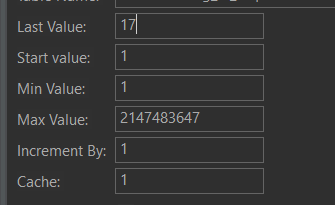This syntax isn't valid in any version of PostgreSQL:
ALTER SEQUENCE payments_id_seq LASTVALUE 22
This would work:
ALTER SEQUENCE payments_id_seq RESTART WITH 22;
And is equivalent to:
SELECT setval('payments_id_seq', 22, FALSE);
More in the current manual for ALTER SEQUENCE and sequence functions.
Note that setval() expects either (regclass, bigint) or (regclass, bigint, boolean). In the above example I am providing untyped literals. That works too. But if you feed typed variables to the function you may need explicit type casts to satisfy function type resolution. Like:
SELECT setval(my_text_variable::regclass, my_other_variable::bigint, FALSE);
To restart the sequence of a serial or IDENTITY column after the currently greatest column value (without even knowing the sequence name):
SELECT setval(pg_get_serial_sequence('payments', 'id')
, COALESCE(max(id) + 1, 1)
, false)
FROM payments;
See:
For repeated operations you might be interested in:
ALTER SEQUENCE payments_id_seq START WITH 22; -- set default
ALTER SEQUENCE payments_id_seq RESTART; -- without value
START [WITH] stores a default RESTART number, which is used for subsequent RESTART calls without value. You need Postgres 8.4 or later for the last part.


setval()has at least two arguments. – Excepting